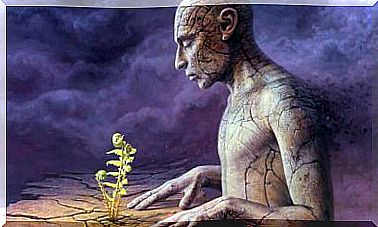Joseph Campbell And The Power Of Myth
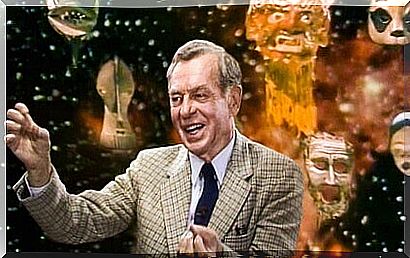
Joseph Campbell was, without a doubt, one of the most prominent mythologists of all time. His life changed when, while he was still a child, his father took him to the American Museum of Natural History. There he discovered the Native American cultures and this aroused a curiosity that accompanied him until his death.
He studied mathematics and biology, but his main interest was culture and the human mind. That is why he soon also graduated in English literature and medieval literature. They were areas that brought him closer to what was his true passion: myths.
Joseph Campbell traveled to Europe to study languages and during his time in the old continent he also met the work of Sigmund Freud and Carl Gustav Jung. He was particularly seduced by the latter’s approach. Then he returned to the United States. He spent five years reading. Thus, he began to think about the idea that all myths, at all times, had a similar structure. That was the seed of a great work.
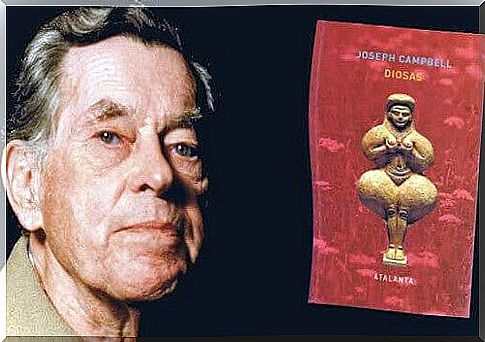
Joseph Campbell and the power of myth
Joseph Campbell made long trips , among which one to India and another to Japan stand out. After the latter, he came to the conviction that American culture was very ignorant of different cultures and myths. That is why he began a dissemination task that he continued to advance until the end of days.
In 1988 the special Joseph Campbell and the power of myth began to be recorded . It was originally a documentary. Each episode featured a conversation between Joseph Campbell and journalist Bill Moyers surrounding the myth. The entire series only aired on television one year after Campbell’s death. From these interviews a book called The Power of Myth was published .
Campbell managed to revive the mythology. Contrary to what many thought, myths were not entertaining stories to tell around a campfire. Rather it is about powerful stories, whose goal is to guide the human spirit. Joseph Campbell was able to prove that, in essence, all human myths were similar. He called this common pattern “monomyth” or “the hero’s journey.”
Hero’s journey
The hero’s journey or the monomyth defines the basic model followed by the main myths and / or epic tales from around the world and of all time. This structure is made up of 17 moments, which are part of three basic stages: departure, initiation and return.
All this is structured as follows:
- The output. It is composed of the call to adventure, the rejection of the call, the supernatural help, the crossing of the first threshold and the belly of the whale.
- The initiation. It is thus composed of different tests, the meeting with the goddess, the woman as temptress, the reconciliation with the father, the apotheosis and the final gift.
- The return. It includes the refusal to return, the magical flight, the rescue from the outside, the remote threshold crossing, the master of the two worlds, and the freedom to live.
In short, Joseph Campbell argues that all myths have a similar basic plot. This one has to do with a hero who accepts the call to enter a strange world. In this, he must face various tests and tasks, for which he sometimes gets supernatural help. If you pass the great test, you get a great gift or blessing. Then he faces the dilemma of whether or not to return to the ordinary world. If he returns, he faces new trials and by overcoming them he brings his gift to improve that world.
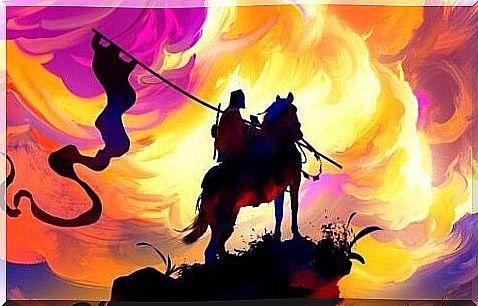
The effects of the power of myth
Finally, the work of Joseph Campbell has had a special impact on the world of literature and cinema. Books like The Lord of the Rings , or tapes like Star Wars , follow step by step the structure of the hero’s journey, that is, the monomyth.
However, the contribution of Campbell’s work goes much further. He saw in myths an “experience of meaning.” That is, an approach to narratives that gave wisdom and meaning to human life. They are stories that allow you to return to the interior of yourself and receive a deep message that is encrypted in symbols, but that still fulfill its task of expanding consciousness.
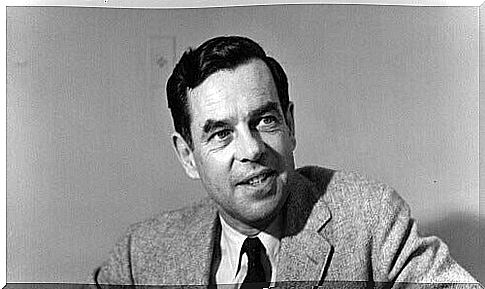
Based on his research, Campbell proposed a philosophy of life that many summarize in one of his recurring phrases: ” Pursue your happiness. ” This is a mantra, a synthesis and also a purpose: to become that hero who goes in search of the gift that will allow him, in the long run, to improve the world in which he lives.




